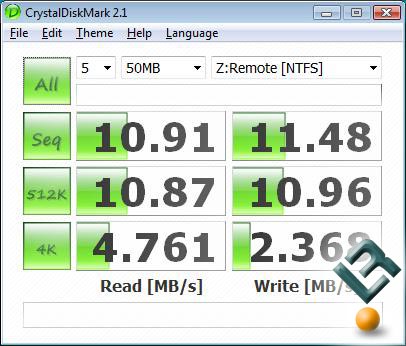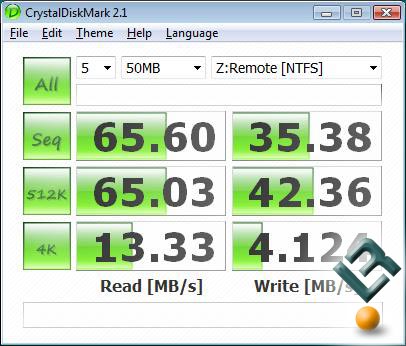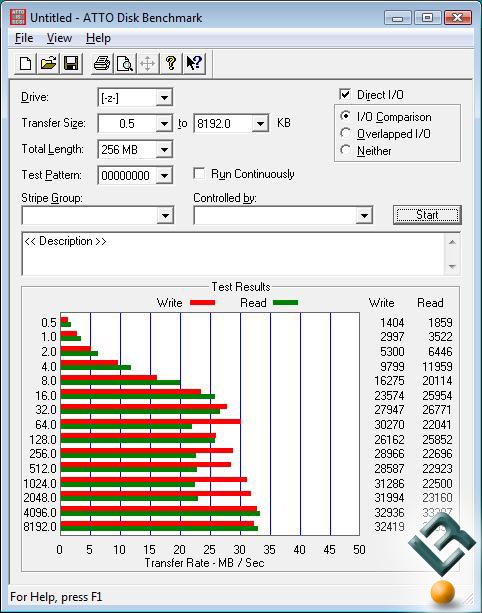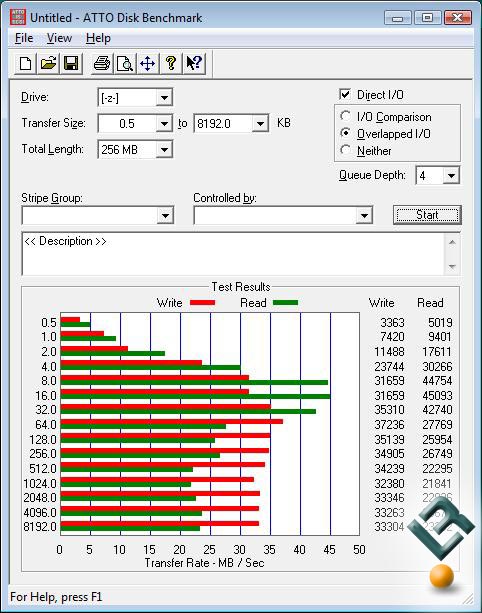Thecus N5200BR NAS Server Review with 5 drives in RAID 6
Benchmarking The Thecus N5200
To start out testing I fired up the ASUS WL-500W Super Speed N multifunctional wireless router loaded up with firmware version 2.0.0.1 (1-31-2008) and benchmarked the performance of the RAID 6 array and the Thecus N5200BR.

The performance wasn’t too impressive as 11.5MB/s isn’t earth-shattering by any means. This was on a 10/100 router though, so let’s change over to a Linksys SD2008 10/100/1000Mbps version 3.0 Gigabit switch and see what happens.

Using a Gigabit switch drastically improved performance since the Thecus N5200 needs more bandwidth to transfer data. The single most important thing you must have to do in order to improve performance of any NAS box is to run it on a Gigabit network. If you spend the ~$700 on a NAS server then be sure to spend the extra ~$100 for the Gigabit switch! A 10/100 switch or router is only good for transfer rates of up to 12.5 MB/s, which kills performance. Now that this has been shown by using Crystal Mark 2.1, all the other benchmarks will be done on the Gigabit switch. The Thecus N5200BR comes with a 4-port Gigabit switch, but my application required 8-ports, which is why I used the Linksys SD2008 switch.

ATTO has been around for some time, but it is still a very popular hard disk benchmarking tool that offers nice features to benchmark RAID setups. The first benchmark that I ran was the one called ‘I/O Comparison’, which is where the benchmark writes files on the disk being tested and then reads them back.

The second test I ran with ATTO is called ‘Overlapped I/O’, which is where the benchmark performs the same task as in the comparison test, but allows the tasks to be divided and executed in parallel.
As you can see the performance numbers between the benchmarks differ, which is why more than one benchmarking utility is needed when looking at hard disk performance. Let’s take a look at how the Thecus N5200 does when using an FTP client in a real world test.

Comments are closed.